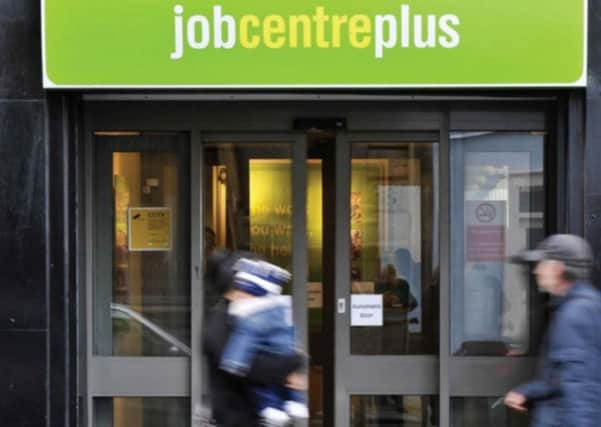Young Scots more likely to live in poverty


The poverty rate for those of working age has risen to 21 per cent, according to the 2015 social exclusion report by the Joseph Rowntree Foundation.
Young adults under 30 are now at a higher risk than any other age group of experiencing poverty in Scotland – the only age group to have seen an increase over the last 10 years.
Advertisement
Hide AdAdvertisement
Hide AdThe lack of well-paid jobs and affordable homes is making it harder to build a secure future, the report adds.
The UK government said the percentage of all people in poverty is the lowest since the 1980s.
Changing risks of unemployment have had a negative effect on the quality of life experienced by those of working age.
Around one in eight under-25s are still unemployed following the recession – at least twice the rate of any other age group.
Those who are unemployed and claiming Jobseeker’s Allowance (JSA) are regularly being referred for a benefit sanction, pushing them into poverty. Sanctions are applied if claimants breach the terms of their Jobseeker’s Agreement. The monthly rate of sanctions peaked at 16 per cent of all claimants in 2013. As a result of sanctions, greater access to hardship payments, such as the Scottish Welfare Fund, is required to help those in need.
On average, one in six to seven jobseekers in Clackmannanshire, Aberdeenshire, Aberdeen and Angus are referred for a sanction each month - around twice as many as in North Ayrshire, South Lanarkshire and East Ayrshire.
Problems with benefits have additionally added to the number of those using food banks. The Trussell Trust earlier this month reported around 35,000 individuals received additional food from its services.
From April to September, food banks gave out 60,458 three-day emergency supplies in Scotland - a rise of 17 per cent on last year.
Advertisement
Hide AdAdvertisement
Hide AdJim McCormick, associate director for Scotland to the Joseph Rowntree Foundation, said: “Low pay is one cause of the problem. If all we did was increase the minimum wage, that doesn’t help people whose problem is limited hours of work.
“We need to find a balance between wage improvements and working benefits, I think we have begun to lose sight of training and progression. We want to people to have a much better training guarantee and better ways to move up. What you see at the bottom end of the jobs market is lots of people moving in and out very rapidly and not managing to exit low pay.”
Over the last 10 years, the number of people in poverty in the social rented sector has come down sharply whereas the number in the private rented sector has risen. The rise – but not the fall – is concentrated among people of working age.
Those who are able to secure jobs are not immune to falling below the poverty line as low pay is forcing qualified workers into poverty.
The JRF said: “While not all low-paid employees are in poverty, neither are all those in in-work poverty necessarily low paid. This points to a further problem for young adults: being better qualified is less of a guarantee of a better paid job than in the past.”
The introduction of the living wage is only one part of the answer to in-work poverty according to the report. The challenge is to identify others including improved opportunities for in-work training for the lowest paid and the least qualified. Individual employers alone can’t provide the whole answer.
McCormick added: “Affordable housing is also something that needs to be tackled. We would advise a living rent which will set rent levels against the average earnings.”
A UK government spokesman said: “This government’s long-term plan to move to a higher wage, lower welfare economy is working – the number of people in in-work poverty is 200,000 lower than at its peak in 2008/09, there are a record number of people in work and wages are rising.
Advertisement
Hide AdAdvertisement
Hide Ad“The truth is, the percentage of people in the UK in relative poverty is at its lowest since the mid 80s and we know that work is the best route out of poverty.
“That’s why the government is increasing work incentives by committing to three million more apprenticeships, extending free childcare, boosting earnings through a new National Living Wage and ensuring people keep more of what they earn by increasing the personal allowance.”